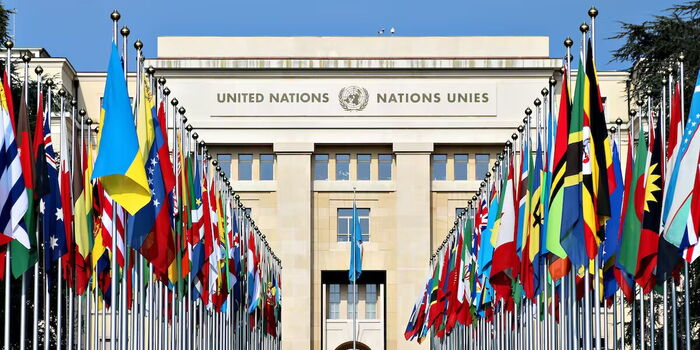The United Nations on Friday, December 6, accused the government of blocking Western countries like Canada from resettling LGBTQ+ refugees, leaving them to languish in dangerous refugee camps and safe houses in Kenya.
According to an investigative series by the Canadian Press, the United Nations High Commissioner for Refugees, in a statement, revealed that the Kenyan government has stopped processing most refugee claims based on sexual orientation or gender identity, despite both being grounds recognised for such claims.
“Since 2021, UNHCR has observed that such claims have been increasingly kept on hold without a decision being made,” wrote a spokesman for the Geneva-based agency.
The situation got worse in 2023, with Kenya nearly halting the registration of LGBTQ+ claimants, who they require to legally work, access benefits and health care, or open a bank account.
President William Ruto (left) discussing with Canada’s Justin Trudeau.
PCS
“Since late 2023, UNHCR has been informed that persons presenting such claims have at times been refused or been subjected to delayed registration, though the government has made no official communication that registration has been suspended for this group,” the UNHCR noted.
Critically, the restrictions have affected refugees who have completed Canadian immigration security and health checks and been issued formal Canadian travel documents, some multiple times.
The government’s blocking of exit permits has led some to flee Kenya for even more precarious conditions in South Sudan, in the hopes of reaching the West.
Ibrahim Kazibwe, founder of the Community Empowerment and Self-Support Organisation in Nairobi, said refugees are increasingly being told that they won’t get an interview for as long as five years if they have claimed asylum on the basis of being a sexual or gender minority.
“The government has put everything on hold for (LGBTQ+) cases,” noted Kazibwe.
The UN’s global head of refugee resettlement said his agency has tried negotiating with the Kenyan government to drop its restrictions and abide by international obligations, calling it “a very real issue” for LGBTQ+ people.
“We have to proceed rather discreetly, not to jeopardize, not to put at risk the people themselves,” UNHCR Commissioner Filippo Grandi mentioned.
Kenya houses two of the world’s largest refugee camps (Dadaab and Kakuma). Since 2006, it has administered refugee decisions on behalf of the UN, using UN criteria to interview asylum claimants and decide whether they qualify for protection.
Our efforts to reach the Ministry of Foreign Affairs for a comment on the matter went unanswered by the time of publishing.
A photo of the Kakuma Refugee Camp
Photo
UN Women



























